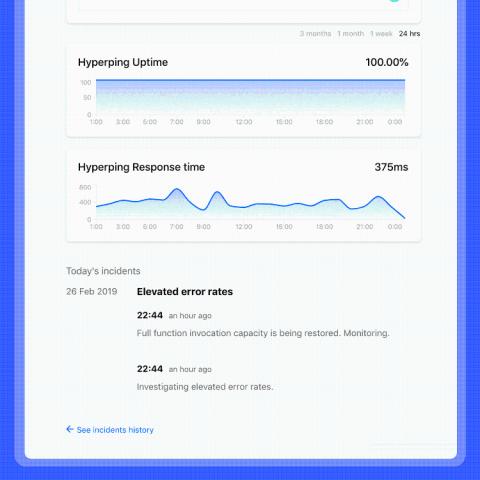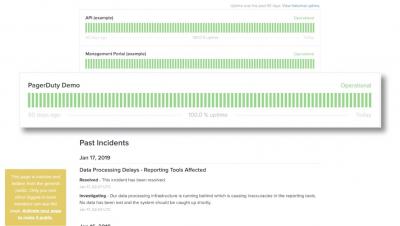Operations | Monitoring | ITSM | DevOps | Cloud
Alerting
Sysdig Monitor: Creating Alerts from Panels
Sysdig Monitor: Creating Alerts from Events
Sysdig Monitor: Creating Alerts from scratch
Introducing Incident Insights for status pages
Did you ever have your customer success team (if you have the chance to have one!) overwhelmed by customers throught the support chat when facing minor incidents or even major outages, having to update all those worried customers in real time throught dozens of different channels as the engineering team finds out and resolves the issue? Support costs time, energy and money. What if all of your users could all connect to one single status page that would answer all of their questions?
We Tested Google Analytics vs Anodot - See Which Anomaly Detection Solution Won
A couple of months ago we released the all-new Anodot.com. Following the release, I explored our Google Analytics account to see what had happened post-launch. I have always been ambivalent about Google Analytics. On the one hand, the service has helped shape web analytics as we know it today and is used by nearly every website. Not to mention it’s free and rather easy to consume. On the other hand, GA is never a slam dunk.
451 Research's Market Map Recognition, Big50's Hot Startup to Watch, and Why Service-Centric AIOps is your Best Bet Today
February has been a great month of industry recognition with our inclusion in 451 Research’s Market Map for Application and Infrastructure Performance and Startup50.com naming us a “Hot Startup to Watch.” To access recent OpsRamp coverage, be sure to visit our newsroom.
The Four Agreements Of Incident Response
Have you ever been on one of those phone calls with several other human beings where you’re all almost screaming at each other while trying to troubleshoot an issue when something’s going wrong that needs to be fixed right this instant? Did you really enjoy that experience and want to do it all the time? My guess is no.
Managing Structured Data, Unstructured Data and the In-Between
There’s a lot of confusion surrounding the differences between structured and unstructured data. To better understand why, let’s review which data formats the industry currently is using, and some of the challenges they pose. Simply put, structured data typically refers to highly organized, stored information that is efficiently and easily searchable. Unstructured data is not.











